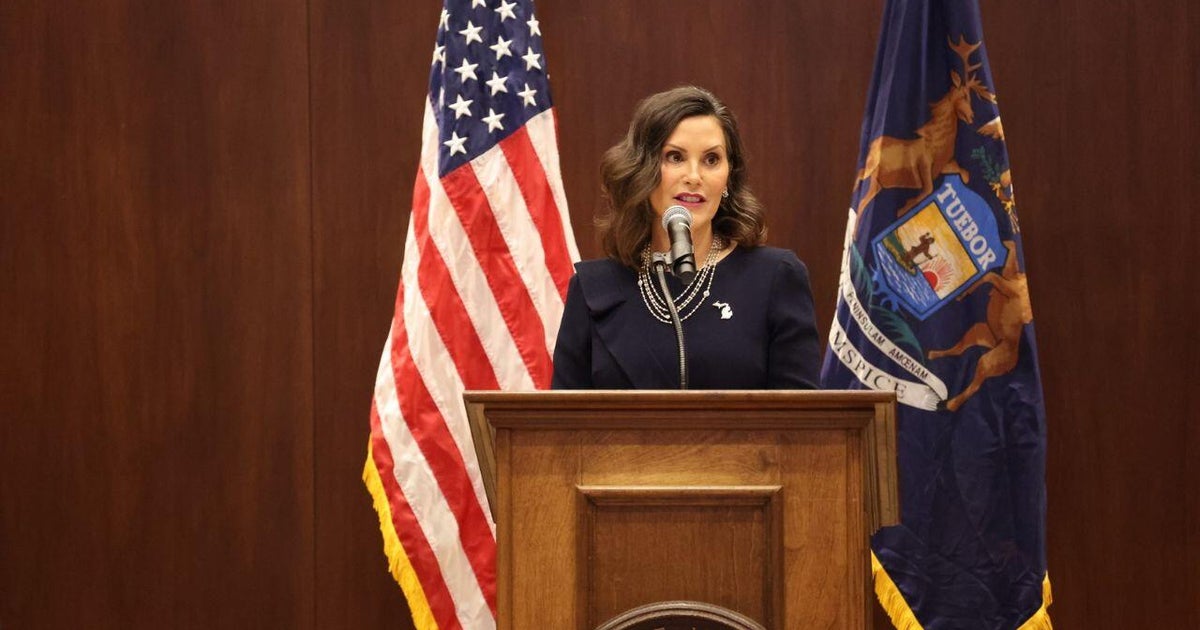Florida Gov. Scott Signs New Budget, Uses Veto Pen Sparingly
Follow CBSMIAMI.COM: Facebook | Twitter
TALLAHASSEE (CBSMiami/AP) — Florida Gov. Rick Scott's time running the state is nearing its end.
Scott, who came into office nearly eight years ago promising to slash government spending as part of a plan to turn around the state's economy, signed a roughly $89 billion state budget Friday that is much larger than the one he approved back in 2011.
Scott acted quickly on the annual spending plan that had been approved by the Republican-controlled Florida Legislature just days earlier. Heading into a crucial election year, Scott spared many individual projects from line-item vetoes. Instead, he vetoed a modest $64 million in projects and spending decisions — the lowest amount he has vetoed during his time in office.
The GOP governor, who is leaving office in early 2019 because of term limits, maintained that his final budget would build on his efforts during his two terms. The budget covers spending from July 2018 to June 2019.
"Today, Florida is strong and I am proud of our hard work over the past seven years to grow the economy, invest in education, protect the environment and keep our families safe," Scott said in his budget-signing letter.
Scott approved a budget that is 29 percent higher than the one he signed his first year, when the Great Recession had hammered Florida's economy and the governor and legislators responded by ordering deep budget cuts.
But even with this year's increased spending levels, the budget drew an outcry from school superintendents who said it could force districts to cut their budgets in the coming school year.
Although lawmakers boosted overall school funding by more than $101 per student, most of the new money is tied to a school safety measure signed into law by Scott in the aftermath of the shooting that killed 17 people at Marjory Stoneman Douglas High School. The new law includes money for mental health programs and to hire additional school resource officers. School districts aren't allowed to move the money into other areas.
Pasco Superintendent Kurt Browning was among several school leaders from across the state who asked Scott to veto the school funding portion of the budget and order legislators back to town to try again. Browning said in a letter to the governor that although he strongly supported the additional safety money, it had come "at the expense of educating our students."
Democrats — including those seeking to replace Scott — blasted the governor for a budget that they said "shortchanged" schools.
Senate President Joe Negron said he was "content" that legislators had tried to set aside enough money for education amid what he called "competing interests."
"I think we have done a reasonable job in trying to increase K-12 funding and trying to increase teacher salaries as our economy has recovered," Negron said Friday.
The budget approved by Scott includes $100 million for Florida Forever, the state's environmental land buying program, which has received minimal money since the Great Recession. Legislators also set aside $50 million to help deal with the state's opioid crisis and agreed to expand the amount paid to 100,000 college students eligible for the state's popular Bright Futures college scholarship program.
Scott's vetoes touched primarily on projects sprinkled through the budget that he said bypassed the normal process or were local projects. The vetoes included $1.5 million to study extending an existing toll road from north of the Tampa Bay area to the Georgia state line. Legislators backed the idea because the road could be used for future hurricane evacuations, but Scott said the study could be done without extra money.
The governor also vetoed $750,000 legislators set aside to look at reversing the flow on major highways during a storm. Scott said the money isn't needed because state officials have already concluded reversing highways is not effective.
(© Copyright 2018 CBS Broadcasting Inc. All Rights Reserved. The Associated Press contributed to this report.)







